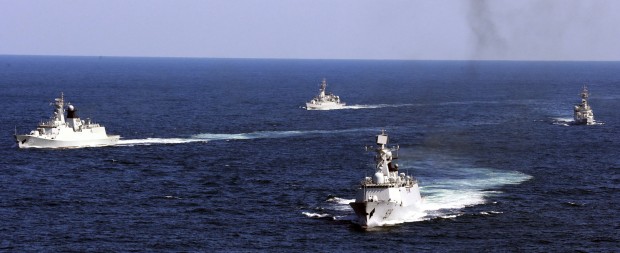US experts: bilateral negotiation better way to settle South China Sea disputes
(Liao Zhengjun, Zhang Penghui of People’s Daily) – The South China Sea arbitration unilaterally initiated by the Philippines was a weak substitute for realistic but honest foreign policy, and the US should have urged the Philippines to return to a diplomatic resolution, an American expert on foreign policy said.
Abraham Sofaer, George P. Shultz Senior Fellow in Foreign Policy and National Security Affairs, Hoover Institution, Stanford University, told People’s Daily that US’s conclusion that China is unwilling to negotiate in good faith is a mistake.
Recently, the spokesmen of China’s Foreign Ministry has time and again reaffirmed China’sadherence to dialogue and consultation in settling the South China Sea issue.
In the past months, the US has increased its military presence in the South China Sea, which is seen by Beijing as proof that Washington is directly supporting the Philippines’ arbitration case.
Douglas H. Paal, Vice President for Studies at the Carnegie endowment for international peace, in a written interview with People’s Daily also shared the point that negotiation would be far preferable to arbitration as a solution to the South China Sea disputes.
Tensions in the South China Sea have been on the rise since the Philippines initiated an arbitration process in 2013, backed by the United States, who said it was not taking sides in the island disputes.
China has made it clear it rejects the arbitration process, stressing that the arbitration process counter to the spirit of international law, including the United Nations Convention on the Law of the Sea (UNCLOS). Beijing also says the arbitration process is essentially related to sovereignty, which is not regulated by the UNCLOS.
Chas Freeman, Assistant Secretary of Defense for International Security Affairs from 1993-94,also told People’s Daily that a bilateral settlement through negotiations was always and remains the best solution to the South China Sea disputes for all interested parties.
According to the veteran diplomat, Chinese confrontations with U.S. naval vessels conducting surveillance operations in waters just beyond China’s territorial seas have greatly complicated China’s ability to take a strategically dispassionate view of the situation with the Philippines.
Chas Freeman also stressed that Manila’s decision to go to court was motivated by the then Philippine government’s desire to score political points, and the International Tribunal’s attempt to exercise jurisdiction over the issues posed by the Philippines has clearly stiffened rather than relaxed China’s position and complicated rather than facilitated a diplomatic solution to the existing problems.


























































